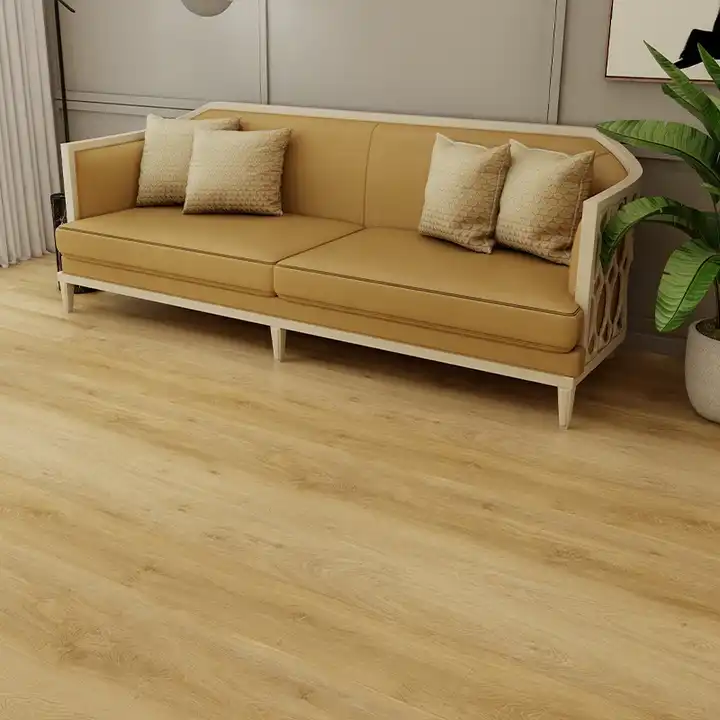Are you in the construction, furniture, or formwork industry and seeking a reliable, high-performance plywood solution? Look no further than film faced plywood! This specialized engineered wood product offers exceptional durability and versatility for a wide range of applications. In this comprehensive guide, we’ll explore everything you need to know about film faced plywood, from its unique advantages to its diverse uses and why choosing the right supplier, like JSY LVL, can make all the difference. Dive in to understand why film faced plywood is rapidly becoming the preferred choice for professionals worldwide.
1. What Exactly is Film Faced Plywood and Why is it Gaining Popularity?
Film faced plywood is a high-quality type of plywood that stands out due to its special outer layers. Unlike regular plywood, film faced plywood has both sides coated with a film coating. This isn’t just any film; it’s typically a phenolic film or melamine film, bonded to the plywood surface under heat and pressure. This process creates a waterproof and wear-resistant surface, significantly enhancing the durability and lifespan of the plywood.
The rising popularity of film faced plywood is no accident. The construction industry is constantly seeking materials that offer both cost-effectiveness and superior performance. Film faced plywood delivers on both fronts. Its enhanced resistance to moisture, abrasion, and even chemicals, makes it an ideal choice for demanding applications like concrete formwork and shuttering boxes. Compared to regular plywood, film faced plywood offers a significantly longer service life and can be reused multiple times, making it a more economical and sustainable option in the long run. As a leading plywood supplier, JSY LVL recognizes this growing demand and is committed to providing best quality film faced plywood to meet diverse project needs.
2. Phenolic Film: The Secret Behind Film Faced Plywood’s Superior Performance
The true magic of film faced plywood lies in its phenolic film. This film is created by soaking paper in phenolic resin and then applying it to the plywood veneer under high pressure and heat. Phenolic resin is known for its exceptional water resistance, strength and durability. This process essentially infuses the surface of the plywood with the properties of the resin to create a durable, protective layer.

The phenolic film not only makes the film faced plywood waterproof but also imparts resistance to moisture, chemicals, and abrasion. This robust surface protection is why film faced plywood is commonly used in challenging environments. For example, in concrete formwork, the plywood is used repeatedly and exposed to wet concrete, extreme weather conditions, and physical stress. The phenolic film ensures the plywood can withstand boiling water and these harsh conditions, maintaining its integrity and shape, preventing warp, and allowing for multiple reuses. In contrast, regular plywood without this protective film would quickly degrade under similar conditions. The quality of the phenolic film is a key differentiator among film faced plywood products, and at JSY LVL, we prioritize using high-grade phenolic resin to ensure our film faced plywood delivers unmatched performance and longevity.
3. Unpacking the Advantages of Film Faced Plywood: Why Choose it Over Regular Plywood?
When comparing film faced plywood to regular plywood, the advantages are clear and compelling, especially for demanding applications. The primary advantages stem directly from the film coating, particularly when it’s a phenolic film.
Here’s a table highlighting the key differences:
| Feature | Film Faced Plywood | Regular Plywood |
|---|---|---|
| Surface Coating | Phenolic or Melamine Film | None or basic veneer |
| Water Resistance | Excellent (Waterproof Film) | Limited |
| Durability | High (Wear-resistant, Abrasion-resistant) | Moderate |
| Reusability (Formwork) | 6-24 times (Phenolic Film) | 1-3 times (Typically) |
| Surface Finish | Smooth, Hard, Easy to Clean | Rough, Prone to Splintering |
| Chemical Resistance | Good | Limited |
| Applications | Formwork, Flooring, Furniture, etc. | General construction, Interior use |
| Cost | Higher initial cost | Lower initial cost |
| Long-term Value | Lower due to reusability & durability | Higher due to shorter lifespan & fewer reuses |
As you can see, film faced plywood offers superior durability and resistance to water and wear. For instance, in formwork applications, phenolic plywood because both sides are protected, can be reused significantly more times (6-24 times with high-quality phenolic, compared to 1-3 times for regular plywood). This reusability dramatically reduces long-term costs and waste. The smooth, hard surface of film faced plywood also results in a better finish on concrete formwork, reducing the need for extensive post-casting work. Furthermore, film faced plywood is easier to clean and maintain, which is crucial in applications requiring hygiene, such as flooring materials in certain industrial or commercial settings.
While regular plywood might have a lower initial cost, the enhanced performance and extended lifespan of film faced plywood make it a more cost-effective and sustainable choice over time, especially when considering the total cost of ownership and project outcomes. If you are looking for a plywood supplier that prioritizes quality and long-term value, JSY LVL’s film faced plywood is an excellent option.
4. Film Faced Plywood vs. Phenolic Plywood: Are They the Same?
The terms film faced plywood and phenolic plywood are often used interchangeably, and for good reason: they are very closely related. However, there’s a subtle but important distinction. Phenolic plywood refers specifically to plywood where the film coating is made of phenolic resin. Film faced plywood is a broader term that encompasses plywood with any type of film coating, including phenolic film, melamine film, or even acrylic films, though phenolic film is the most common and highly regarded, especially for demanding applications.
In practice, when people talk about film faced plywood, they are very often referring to phenolic plywood because both sides are typically coated with phenolic film. This is because the phenolic resin offers the best combination of waterproof, wear-resistant, and durability properties, making it the preferred choice for formwork, flooring, and other heavy-duty uses. While melamine film faced plywood is also available and can be suitable for less demanding applications where cost is a primary concern, phenolic plywood remains the gold standard for performance and longevity.
Therefore, while not strictly identical, in most practical scenarios, especially within the construction industry, film faced plywood is also understood to mean phenolic plywood. When choosing, it’s always best to clarify the type of film used. At JSY LVL, we primarily offer phenolic plywood due to its superior performance characteristics, ensuring our customers receive the best plywood for their projects.
5. Industrial Applications of Film Faced Plywood: Where Does it Shine?

Film faced plywood’s exceptional properties make it invaluable in a wide range of industrial applications, particularly where strength and durability, coupled with resistance to moisture and wear, are paramount.
One of the most significant applications of film faced plywood is in concrete formwork. As mentioned earlier, its waterproof nature and ability to withstand the alkaline conditions of wet concrete make it ideal for creating molds for concrete forming. Film faced plywood is used to construct columns, beams, walls, and floor slabs, providing a smooth, even surface to the finished concrete. Its reusability in formwork is a major advantage, reducing material costs and construction time. JSY LVL’s formply, a specialized type of film faced plywood designed for formwork, is engineered to meet the rigorous demands of modern construction sites.
Beyond formwork, film faced plywood is also extensively used in:
- Flooring in transport vehicles: Trucks, trailers, and railway carriages use film faced plywood flooring due to its wear-resistant and anti-slip properties, ensuring safety and longevity under heavy loads and constant use. Anti-slip film faced plywood, with a textured film surface, is particularly favored for these applications like truck beds and loading platforms.
- Scaffolding: Laminated scaffold boards made from film faced plywood provide a safe and durable working platform at height. The strength and durability of film faced plywood are crucial for ensuring worker safety in scaffolding systems. JSY LVL also supplies high-quality LVL scaffold planks for sale, which complement film faced plywood in scaffolding applications.
- Industrial flooring: In factories and warehouses, where floors are subjected to heavy machinery and constant traffic, film faced plywood flooring offers a tough, wear-resistant surface that can withstand heavy loads and abrasion.
- Agricultural buildings: The resistance to moisture and chemicals makes film faced plywood suitable for use in agricultural settings, such as livestock housing and storage sheds, where hygiene and durability are important.
These are just a few examples of how film faced plywood is revolutionizing various industries. Its versatility and performance make it a go-to material for engineers and designers seeking reliable and long-lasting solutions.
6. Domestic Applications of Film Faced Plywood: Is it Suitable for Home Projects?
While film faced plywood is widely recognized for its industrial applications, its benefits extend to domestic applications as well. Homeowners and DIY enthusiasts are increasingly discovering the advantages of using film faced plywood for various projects around the house.

For example, film faced plywood makes excellent flooring materials, especially in areas prone to moisture, such as basements, garages, and laundry rooms. Its water resistance prevents warp and rot, ensuring a long-lasting and stable floor. It’s also easy to clean and maintain, making it a practical choice for busy households. Consider using Oak flooring or Solid wood flooring in conjunction with film faced plywood subfloors for enhanced durability and moisture protection.
Film faced plywood is also ideal for:
- Furniture making: Its smooth surface and durability make it suitable for crafting modern, minimalist furniture. It’s particularly well-suited for children’s furniture due to its non-toxic finish and easy-to-clean surface.
- DIY projects: From workbenches and shelving units to outdoor furniture and playhouses, film faced plywood offers a robust and weather-resistant material for a wide range of DIY creations. Its dimensional stability and ease of cutting and shaping make it a joy to work with.
- Wall paneling: For a contemporary and durable wall finish, SPC wall panel systems using film faced plywood substrates offer excellent moisture resistance and impact resistance. JSY LVL’s SPC wall panel range provides stylish and functional wall solutions for homes.
- Shed and garage construction: Building a garden shed or garage? Film faced plywood is an excellent choice for walls, roofing, and flooring, providing superior weather protection and structural integrity.
While film faced plywood might be slightly more expensive than regular plywood initially, its extended lifespan and reduced maintenance requirements can make it a cost-effective choice for domestic applications in the long run. For projects where durability and resistance to moisture are key, film faced plywood is a smart investment.
7. Exploring Different Types of Film Faced Plywood: Smooth, Anti-Slip, and More
Film faced plywood can be divided into different types based on the film surface and intended application. The two main categories are smooth film faced plywood and anti-slip film faced plywood.
Smooth film faced plywood is characterized by its even, glossy surface. This type is most commonly used in construction for concrete formwork and general-purpose applications where a smooth finish is desired. The smooth surface ensures a clean release from concrete as it dries, resulting in a high-quality concrete finish with minimal imperfections. It’s also used in furniture making and interior design where a sleek, modern look is preferred.
Anti-slip film faced plywood, on the other hand, features a textured or wire mesh pattern on one or both sides. This textured surface provides enhanced grip and reduces the risk of slipping, making it ideal for applications like flooring in transport vehicles, scaffolding platforms, and walkways where safety is a priority. The anti-slip film faced plywood is crucial for applications requiring secure footing, especially in wet or demanding conditions.
Beyond these main types, film faced plywood can also vary in:
- Film color: Brown film is the most common, but black, yellow, and other colors are also available depending on the manufacturer and application.
- Film weight: Heavier films offer greater abrasion resistance and longer lifespan.
- Core veneer: The type of plywood core (poplar, eucalyptus, birch, pine, etc.) affects the overall strength and durability, as well as the price. Birch core film faced plywood is often considered the best quality, offering superior strength and stability.
- Thickness: Available in various thicknesses, typically ranging from 6mm to 25mm or more, to suit different structural and application requirements. For instance, Phenolic film faced plywood 16mm, film faced ply 15mm, and Phenolic plywood 14mm are common thicknesses for formwork, while thinner options like 12mm Film faced plywood might be used for furniture or interior applications.
When selecting film faced plywood, consider the specific requirements of your project, including the desired surface finish, load-bearing capacity, and environmental conditions, to choose the most appropriate type and specifications. JSY LVL offers a diverse range of film faced plywood options to meet various project demands.
8. Choosing the Best Film Faced Plywood Supplier: What to Look For?
Selecting the right plywood supplier is crucial to ensure you receive high-quality plywood that meets your project requirements and budget. As a factory specializing in engineered wood products, JSY LVL understands the key factors to consider when choosing a film faced plywood supplier.
Here are essential aspects to evaluate:
- Product Quality and Certifications: Look for a supplier that offers film faced plywood manufactured to recognized standards. Certifications like FSC (Forest Stewardship Council) for responsible sourcing and CARB (California Air Resources Board) for formaldehyde emissions are important indicators of quality and environmental responsibility. Enquire about structural certifications if you need structural plywood. JSY LVL is committed to providing certified and best quality film faced plywood.
- Range of Products and Customization: A good supplier should offer a variety of film faced plywood types, thicknesses, and film options to suit different applications of film faced plywood. The ability to customize sizes or specifications can also be beneficial for specific project needs. JSY LVL offers a comprehensive range of plywood is used for various purposes, including structural plywood, non-structural plywood, and formply.
- Manufacturing Capabilities and Quality Control: Choose a supplier with robust manufacturing facilities and stringent quality control processes. This ensures consistent product quality and adherence to specifications. As a factory with multiple production lines, JSY LVL maintains strict quality control throughout the manufacturing process.
- Experience and Reputation: Opt for a supplier with a proven track record and positive reputation in the industry. Experience in exporting to your region (e.g., USA, Europe, Australia for JSY LVL) is also an advantage, as it indicates familiarity with international standards and logistics.
- Pricing and Value: While price is important, focus on overall value. Best quality film faced plywood might have a slightly higher upfront cost but offers better performance, longer lifespan, and greater reusability, resulting in long-term cost savings. JSY LVL aims to provide competitive pricing without compromising on quality.
- Logistics and Support: Consider the supplier’s logistics capabilities, including shipping options and lead times, especially if you have tight project schedules. Reliable customer support and communication are also essential for a smooth procurement process. JSY LVL has experience in exporting to major markets and offers efficient logistics solutions.
By carefully evaluating these factors, you can select a film faced plywood supplier that meets your specific needs and ensures the success of your projects. JSY LVL welcomes inquiries and is ready to demonstrate why we are a trusted plywood supplier for customers worldwide.
9. How Does Film Faced Plywood Compare to Other Types of Plywood Like Regular Plywood and Shuttering Plywood?
To fully appreciate the benefits of film faced plywood, it’s helpful to compare it to other common types of plywood, such as regular plywood and shuttering plywood.
Regular Plywood: As discussed earlier, regular plywood lacks the protective film coating of film faced plywood. It is generally less waterproof, less wear-resistant, and has a shorter lifespan, especially in demanding environments. Regular plywood is suitable for general construction, interior applications, and non-structural uses where moisture and wear are not major concerns. However, for formwork, flooring, and outdoor applications, film faced plywood is significantly superior.
Shuttering Plywood: Shuttering plywood is a term often used interchangeably with film faced plywood, particularly in the context of concrete formwork. However, sometimes shuttering plywood can also refer to regular plywood that is treated or coated to improve its resistance to moisture and alkalinity for formwork applications. In this case, film faced plywood is the special plywood, especially phenolic plywood, offers a much higher level of performance and reusability compared to treated regular plywood shuttering plywood. Therefore, when looking for shuttering plywood, it’s crucial to clarify whether it is film faced or simply treated regular plywood to ensure you get the required performance. Formply from JSY LVL is specifically designed as high-performance film faced plywood for demanding shuttering needs.

In summary:
- Film Faced Plywood: Superior waterproof, wear-resistant, and durable due to film coating (especially phenolic). Ideal for formwork, flooring, outdoor applications, and demanding industrial/domestic uses. Higher reusability and longer lifespan.
- Regular Plywood: Basic plywood without film coating. Suitable for general construction, interior uses, and non-structural applications where moisture and wear are not critical. Lower cost but shorter lifespan and limited reusability.
- Shuttering Plywood: Can refer to film faced plywood or treated regular plywood for formwork. Film faced shuttering plywood (like JSY LVL’s formply) offers significantly better performance and reusability than treated regular plywood.
Choosing the right type of plywood depends on the specific requirements of your project. For projects demanding high performance, durability, and reusability, film faced plywood is undoubtedly the superior choice.
10. Maximizing the Lifespan and Durability of Your Film Faced Plywood
To get the most out of your investment in film faced plywood and maximize its lifespan and durability, proper handling, storage, and maintenance are essential.
Here are some key recommendations:
- Proper Storage: Store film faced plywood in a dry, well-ventilated area, away from direct sunlight and rain. Stack plywood flat on a level surface to prevent warping. If storing outdoors temporarily, cover the stack with a waterproof tarp to protect it from weather and extend the plywood’s service life.
- Careful Handling: Avoid dropping or dragging film faced plywood sheets, as this can damage the edges and film surface. Use proper lifting techniques and equipment, especially for larger sheets.
- Edge Sealing: While film faced plywood is waterproof on the faces, the edges are still vulnerable to moisture penetration. For applications like formwork or outdoor applications, consider sealing the edges with acrylic varnished edges or a water-resistant sealant to further enhance moisture resistance and prevent edge swelling.
- Cleaning and Maintenance: After use in formwork, clean film faced plywood promptly to remove wet concrete residue. Use a scraper or stiff brush to remove hardened concrete. Avoid using harsh chemicals or abrasive cleaners that could damage the film surface. For general cleaning, use a damp cloth and mild detergent.
- Repairing Minor Damage: Minor scratches or surface damage to the film can be repaired with touch-up paint or sealant to maintain waterproof properties and prevent further degradation.
- Re-oiling for Formwork: For formwork applications, applying a release agent or form oil before each use helps to prevent concrete from sticking to the surface and extends the reusability of the plywood.
By following these best practices, you can significantly prolong the plywood’s service life of your film faced plywood and ensure it continues to perform optimally for multiple uses. Investing in high-quality plywood from a reputable plywood supplier like JSY LVL, combined with proper care, will provide excellent long-term value.
11. Frequently Asked Questions about Film Faced Plywood
Q: What is film faced plywood made of?
A: Film faced plywood is made of layers of wood veneer glued together, just like regular plywood. The key difference is that film faced plywood has a film coating on both sides, typically made of phenolic resin or melamine. The core veneer can be made from various wood species like poplar, eucalyptus, birch, or pine, depending on the desired properties and cost.
Q: Is film faced plywood waterproof?
A: Yes, film faced plywood is designed to be highly water-resistant and often referred to as waterproof due to its film coating. The phenolic film, in particular, provides excellent resistance to water penetration, making it suitable for outdoor applications and applications involving wet concrete.
Q: How many times can film faced plywood be reused in formwork?
A: The reusability of film faced plywood in formwork depends on the quality of the plywood and the film coating. High-quality phenolic plywood can typically be reused 6-24 times, while lower-grade options or melamine film faced plywood might offer fewer reuses (1-3 times). Proper handling and maintenance also significantly impact reusability.
Q: Can film faced plywood be painted?
A: Yes, film faced plywood can be painted, although the smooth, non-porous film surface might require proper preparation for paint adhesion. Light sanding and a primer suitable for non-porous surfaces are recommended for shuttering boxes to ensure good paint adhesion.
Q: Is film faced plywood environmentally friendly?
A: Film faced plywood can be an environmentally friendly option, especially when sourced from sustainably managed forests and certified by organizations like FSC. Additionally, its durability and reusability contribute to resource efficiency. JSY LVL offers environmentally friendly options and can provide certifications upon request.
Q: Where can I buy film faced plywood?
A: You can buy film faced plywood from plywood suppliers like JSY LVL, building material retailers, and specialized timber merchants. It’s important to choose a reputable supplier to ensure you receive high-quality plywood that meets your project needs. Exhibitions are also a great way to find reliable suppliers and see products firsthand.
12. Conclusion: Film Faced Plywood – The Smart Choice for Your Next Project
Film faced plywood is the special engineered wood product that combines exceptional durability, waterproof properties, and versatility for a wide array of applications. From concrete formwork and heavy-duty flooring to furniture and DIY projects, film faced plywood offers superior performance compared to regular plywood, making it a smart choice for professionals and homeowners alike.

As a leading plywood supplier, JSY LVL is committed to providing best quality film faced plywood to meet your project demands. With our multiple production lines and focus on quality control, we ensure consistent product performance and reliability. Whether you are in the construction industry, furniture manufacturing, or any other sector requiring high-performance plywood, explore the benefits of film faced plywood and experience the difference it can make.
Key Takeaways:
- Film faced plywood is superior to regular plywood due to its phenolic or melamine film coating, offering enhanced water resistance, durability, and reusability.
- Phenolic plywood, a type of film faced plywood, is ideal for demanding applications like concrete formwork due to its exceptional performance and reusability (6-24 times).
- Film faced plywood is versatile and suitable for both industrial applications (formwork, flooring, scaffolding) and domestic applications (flooring, furniture, DIY projects).
- Choosing a reputable plywood supplier like JSY LVL is crucial to ensure best quality film faced plywood and reliable service.
- Proper handling, storage, and maintenance are essential to maximize the lifespan and durability of film faced plywood.
Ready to elevate your projects with film faced plywood? Contact JSY LVL today to discuss your needs and discover our range of high-quality engineered wood solutions. For your structural needs, explore our Structural Plywood and LVL Timber (Engineered Wood Products) options. And for interior finishes, consider our stylish and durable SPC Wall Panel. We are your trusted partner for all your engineered wood product requirements.
Post time: Feb-11-2025




